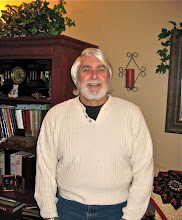I joined EDS in 1973 when the company was a little over 11 years old. There were 3,000 employees, the company had revenues of $110 Million. I was there and helped the company achieve $250 Million, $500 Million, $1 Billion, $10 Billion, and $20 Billion. I was there when the employee count went to 5,000, then 10,000, then 50,000, then 100,000, and eventually 160,000. I was there when the company first went international. I was there when Ross Perot sold the company to GM (itself now struggling for survival) yet managed to keep EDS as an unconsolidated subsidiary with it's own tracking stock (the first time such a class of stock had ever been offered on the New York Stock Exchange). I was there when Ross left the company assuming the title of "Founder." When he left, he was still earning the same salary as when I joined, $60,000 per year. He always cast his lot with the company's fortune, basing his wealth on his stock in the company. He was bought out for $700 Million.
Subsequent to Perot's departure, the company had a succession of leaders. Les Alberthal initially continued to grow the company and eventually led the company back to an independent corporation. He also made an effort to erase the "cult of personality" that he viewed as Perot's influence. But it soon became obvious that Alberthal (and the rest of the second tier leaders) was no match for Perot's business approach and influence. The company soon stalled in it's growth and Alberthal was replaced after receiving $36 Million for his accomplishment.
Dick Brown, a telephone guy, replaced Alberthal and pretty much the senior leadership in EDS. he also couldn't match Perot. In fact, he couldn't match Alberthal--in a mere two years, Brown and his team brought EDS to the brink of bankruptcy.
Brown was replaced by Michael Jordan, a turn-around specialist who once again brought (and bought) his own cadre of secondary leaders. By basically selling off assets, cutting out (or drastically reducing) investment in future technology, and embarking on a series of labor cuts and early retirements, EDS was "saved" into profitability. Jordan left the company in better financial shape than when he joined, but the company was well on it's way to becoming a tier 2 player.
When Ron Rittenmeyer became chairman, it was only a matter of time before the company was acquired. EDS was fast becoming a niche player, unable to effectively compete against those larger companies that both manufactured hardware and sold services.
The end came rapidly: In August 2008, EDS was acquired by HP, becoming a business unit called "EDS, an HP Company." That was only a transition phase. In October, HP announced a massive reduction in force at EDS of around 26,000 people over three years. However, with the beginning of December, it was obvious that reduction was going to be accelerated. HP did not want to have the lingering problems it experienced after acquiring Compaq Computer (and to a lesser extent, DEC). Added to that was a souring economy and the need for action became more critical. Therefore, in the first week of December, the layoffs accelerated, it was announced that Rittenmeyer would retire at the end of the year, and EDS would be absorbed into HP's Technical Services Group. So long EDS. As W. Edwards Deming once said, "Survival is not mandatory."
From the beginning, I owned EDS stock and continued to own the GME tracking stock even when I left EDS for a few years in the 1990s. And I owned EDS stock when HP cashed it out during the acquisition. I did well (not as well as Rittenmeyer's three-year tenure and buy-out, but I can sleep at night). I hope HP prospers as I continue to own their stock. But I will miss EDS. I was a part of something probably most people never have a chance to experience and those there now will never experience.
I have been retired from EDS for more than a year. It was a great ride and I wouldn't trade it for anything. Alas EDS, I knew it well. It is truly the end of an era.
Sunday, December 7, 2008
Subscribe to:
Posts (Atom)



